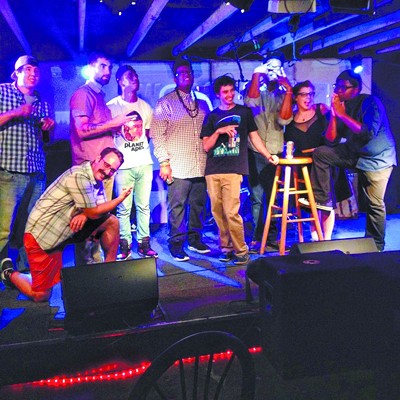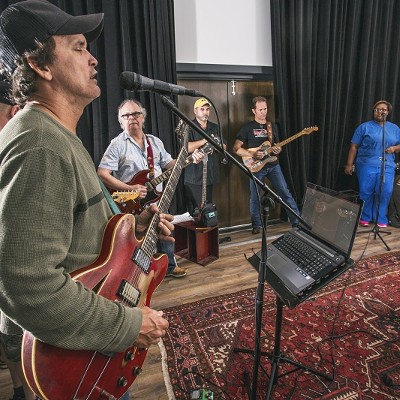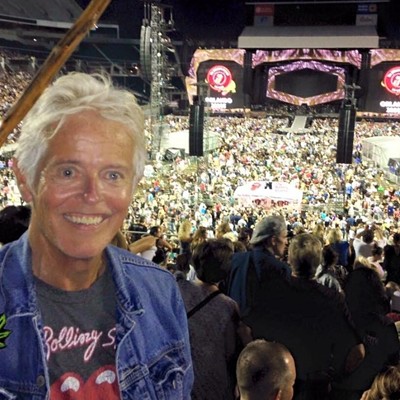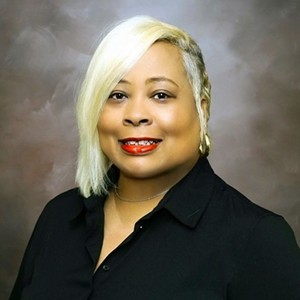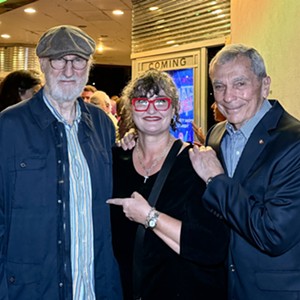Soundman for Chappelle appearance responds
Editor,
I just read Jim Reed’s recent commentary about the Dave Chappelle show, and I have to say that he has a realistic concern. I was brought in as a contract engineer (thanks for the almost-mention, by the way) but had nothing to do with the system itself.
One of our techs here at the office must have been seated next to you, as he made similar comments to me the next morning. I actually was not aware of it until he mentioned the problem. No one made any comments on the sound that night to me or any of the Civic Center employees.
The issue arises when they seat people on the pit, which is in front of the “front fills” on the front pit wall, in front of the speakers in the side pockets and in front of the lowest facing speaker in the center cluster — all of which is intentional so as to avoid feedback problems when the performers venture out to the edge of the pit when it is up.
When they lower the front section of the orchestra pit and put seats on it, you can see the problem brewing. The thought is that you are going to be able to hear the performer in the near-field plus whatever spill you would get off of the stage monitors. Apparently this isn’t as effective as it was thought to be.
I spoke with the Civic Center staff and we agree that the small “hot spot” monitors are needed and in the future we will bring some in that will be run individually of the house system just for the “pit fills.” That will solve your problem.
I’ve said in the press over the years that the Johnny Mercer Theater really DOES sound good and if the (traveling) engineer doesn’t over-mix the room, it will shine. It’s just a shame when road shows come in with their own engineers and they do a bad job and the house suffers for it.
It’s also a shame when people bad-mouth the theater (“this room which suffers from notoriously poor acoustics to begin with”), because the room actually sounds excellent when it’s left alone (reference: classical and acoustic music), because we have a great facility that we need to be proud of.
The new speaker system in the Johnny Mercer Theater was specifically designed to be an effective system for “most” uses of the theater. One will agree that “most” of the time, the pit is up, and the performers have a decent chance of ending up out there... and if there were speakers permanently mounted there, problems would ensue.
I will work with their staff to make them aware of what it will take to get some monitors up there when needed. The good news is that they call me in to engineer many of the “critical sound” events, so I’ll now ask the question as to whether or not they plan to seat the pit.
I have said over the years “if the sound is good, the write-up is for a ‘good performance,’ and if the sound is bad, the write-up is about the ‘bad sound.’ You very rarely read a write-up that mentions the ‘good sound.’” It’s expected but not mentioned. “Harumph,” the sound guy says.
Thanks for your observations and I hope you enjoyed the portion of the show you heard from in FRONT of the speakers!
Paul Mazo“Veteran Savannah-based Engineer”Stop alcohol sales
Editor,
Regarding Jim Reed’s “Dave Chappelle vs. Savannah rudeness”:
We’ve shelled out big bucks in our attempts to enjoy cultural experiences in Savannah to be constantly disappointed by the crowd. Whether it’s musicals, storytellers, political icons, bands, etc., we leave these experiences disappointed, not by the acts but by the disrespectful, unruly crowds.
I’m not a teetotaler but have to think the difference between shows here and elsewhere is the availability of alcohol throughout the show. Multiple times I have “shushed” the inebriated person next to me.
My theatre experiences have spanned the country and I’ve never encountered a venue that serves liquor throughout the performance and allows drinks back into the theatre. I’m all for having a good time but NOT when it ruins it for the masses.
Kristin HyserTelfair clarification
Editor,
In the otherwise splendid recent article on old Savannah photos (“Right place at the right time,” by Linda Sickler), there’s an error in describing William Brown Hodgson, for whom the Georgia Historical Society building is named.
He was the husband of Margaret Telfair, and her sister Mary’s brother-in-law, not Mary’s husband. Mary never married, but lived with her sister and Hodgson in the Telfair home here. William Brown Hodgson was a noted scholar, who gave up a promising diplomatic career to wed Margaret, after meeting the Telfair sisters in Paris.
According to Mary Telfair: The Life and Legacy of a 19th Century Woman, by Charles J. Johnson, Jr., Margaret wanted to give the GHS a new headquarters and library because Hodgson had served for 25 years on their board of curators, and was described at the time of his death as “one of its most useful, active, and important members.”
If the Telfair sisters could come back today, they would be pleased at how the Society has fulfilled their trust in it.
Margaret W. DeBolt
